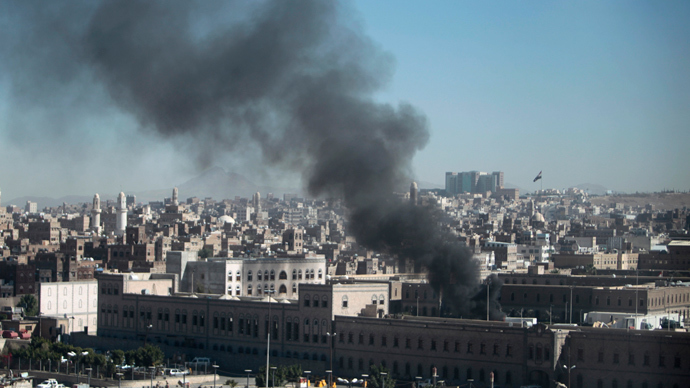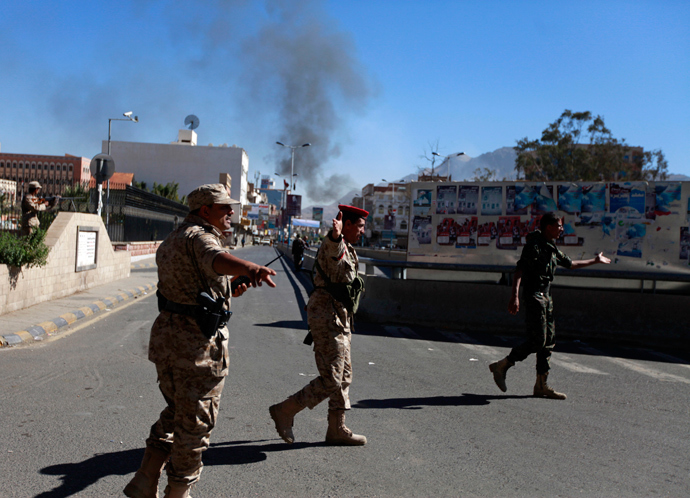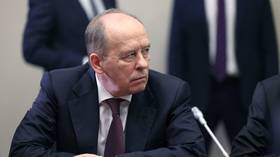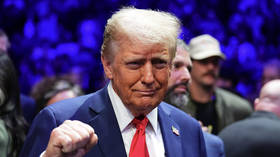Yemen attacks should be assessed in terms of internal political conflicts

Attacks in Yemen are a part of the political transition that’s taking place there, and as for the Islamist groups there is a deep degree of skepticism amongst the public that they actually exist, James Corbett, host of The Corbett Report, told RT.
RT:No one has claimed responsibility for the attack. But who might have been behind it?
James Corbett: Interestingly enough, it was just reported two days ago that a senior diplomat who is involved in a current political reconciliation conference that is happening right now in Yemen to determine the political future of the country, has pinned the blame for the wave of chaos and attacks that have been taking place in Yemen over the past two months, including series of political assassinations at the doorstep of the former president Saleh and the GPC party, that he is involved with. In the words of that senior diplomat that was quoted in this story, saying that this is basically an attempt to destabilize the current coalition government and hopefully in their eyes ensure the political future of the GPC party. So that is a pretty interesting statement, coming just two days before this particular attack. Of course a lot of the media is now jumping on this as a chance to say that this attack wears the all the hallmarks of Al-Qaeda, despite the fact that this attack is quite unusual, including not only the fact that it was not just a suicide bombing, but there were militants storming the Defense Ministry afterwards and engaged in a firefight with members of the Yemen security forces. And these gunmen were apparently, according to reports, dressed in military fatigues. So this is quite an interesting and coordinated attack that’s just taken place.

RT:Doesn't it surprise you that this attack was actually able to take place because security has been very tight in the capital due to the high number of attacks that we've seen over the last few days?
JC: That’s exactly right. Of course we've seen ever since summer the closing of some of the embassies in Yemen on the basis of reports of possible attacks, we've seen increased security in Sanaa and because of these political assassinations that have been going on there has even been a ban on motorcycles in the capital for the first two weeks of December because this is the preferred getaway vehicle for these assassins. So there's definitely a heightened sense of security at this moment meaning that this attack was even more brazen and presumably had even more resources and coordination behind it in order to pull something like this off.
RT:Many in Yemen are strongly opposed to US drone strikes there, with civilians often caught in the crossfire. Could the increasing level of violence and chaos in the country be partially blamed America's drone policy?
JC: There are a number of issues that are taking place, but I think we have to understand what’s happening in Yemen right now in terms of the internal conflicts that are happening there between the former ruling party GPC. There would be political upstarts that are tempting to gain power in that transition process that is happening right now, including the Houthis, which is the Shi’a group. We have to understand that there is intense political rivalry happening right now and the former forces associated with Saleh, the former ruling party in Yemen, tends to blame attacks on Al-Qaeda militants because that helps to ensure US military aid and financial aid to the Yemeni government. But we have to understand that this is a part of political transition that’s taking place right now and there is a great degree of instability and a deep degree of skepticism amongst the general public that these Islamist groups even exist. In fact there is a New York Times report and a LA Times report back in 2010 reporting on how the vast majority of the Yemenis have never even heard of Anwar al-Awlaki, the supposed leader of Al-Qaeda in the Arabian Peninsula back then, or indeed believed that Al-Qaeda was the real force in the country. We have to understand this in terms of domestic politics.
The statements, views and opinions expressed in this column are solely those of the author and do not necessarily represent those of RT.
The statements, views and opinions expressed in this column are solely those of the author and do not necessarily represent those of RT.












